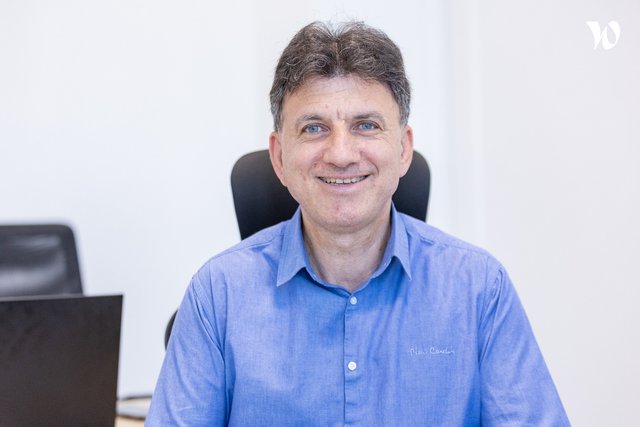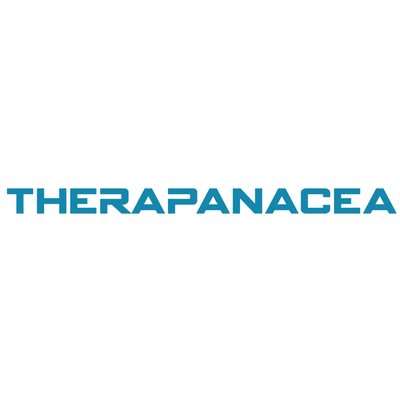PhD Position - Lung Cancer Management in Radiation Oncology through Artificial Intelligence
Le poste
Descriptif du poste
Lung cancer remains one of the most challenging cancers to treat and is a leading cause of cancer-related mortality worldwide. Innovations in radiation oncology are essential to enhance treatment precision and improve patient outcomes. This PhD project, a collaboration between HEGP / APHP hospital. Université Paris Cité and TheraPanacea, aims to leverage artificial intelligence to tackle key challenges in lung cancer management. The project is divided into three interconnected work packages, each addressing specific aspects of treatment planning, monitoring, and assessment.
The first objective focuses on the development of a deep learning method for automatic delineation of the target volume in CT images. Accurate delineation of the tumor and surrounding organs at risk is critical for delivering precise radiation therapy. However, the current manual contouring process is time-consuming, labor-intensive, and prone to inter-observer variability. This work package will develop a convolutional neural network (CNN) optimized for 3D medical imaging, capable of segmenting lung tumors and nearby critical structures with high accuracy. By incorporating multi-modal imaging data when available, the model aims to enhance segmentation precision and reliability, streamlining the treatment planning process and minimizing variability.
The second objective addresses the challenge of tumor motion during radiation delivery, which is caused by physiological factors such as respiration. To overcome this, a recursive neural network (RNN) will be developed for automatic tracking of tumor movement in real-time using 2D bi-planar X-rays. This approach leverages the sequential nature of tumor motion data to continuously monitor the tumor’s position during treatment. By utilizing bi-planar X-rays, the model aims to achieve enhanced tracking accuracy and integrate respiratory motion patterns into its predictions. This innovation will enable more precise radiation delivery, minimizing damage to healthy tissues and increasing the efficacy of the treatment.
The third work package explores the use of generative AI to address the limitations of traditional bi-planar imaging techniques, towards volumetric 3D CT reconstruction to assess overall treatment toxicity and patient benefit. This effort focuses on harnessing a generative diffusion network to reconstruct high-quality 3D CT images from 2D bi-planar X-rays. This approach allows for comprehensive assessment of tumor motion and direct estimation of treatment outcomes and toxicity. The reconstructed 3D images will be analyzed, exact tumor location will be used to identify markers of treatment response and side effects, offering clinicians valuable insights for both planning and follow-up. By minimizing radiation exposure while maintaining diagnostic and therapeutic accuracy, this package enhances patient safety and care.
This thesis project represents a multidisciplinary collaboration that combines the clinical/scientific expertise of HEGP / APHP hospital with the technological innovation of TheraPanacea. By addressing critical challenges in lung cancer management, the outcomes of this research have the potential to transform radiation oncology, improving treatment precision, reducing risks to patients, and ultimately enhancing the quality of life for those affected by lung cancer.
Profil recherché
MSc/MEng in Computer Science, Applied Mathematics, Statistics, or Related Field
The ideal candidate for this research should possess an excellent academic background, with a MSc/MEng in computer science, applied mathematics, statistics, or a related field. This foundational knowledge is crucial as it provides the essential theoretical and practical skills needed to develop and implement complex algorithms. Courses in algorithms, data structures, software engineering, and numerical methods will equip the candidate with the ability to design efficient computational models. lgorithms.
Prior Experience in Machine Learning / Deep Learning
The candidate should have prior experience in machine learning and deep learning, as these are the core technologies driving the integration of radiological imaging, histopathology, and clinical data in this project. The candidate should be familiar with different types of neural networks, including convolutional neural networks (CNNs) for image processing, recurrent neural networks (RNNs) for sequential data, and generative adversarial networks (GANs)/diffusion networks for data augmentation and synthesis. Additionally, experience with model training, hyperparameter tuning, and performance evaluation is essential. Practical projects or coursework involving the implementation of supervised, unsupervised, and reinforcement learning algorithms will be highly beneficial.
Prior Experience in the Use of Machine Learning in Healthcare - Exposure in Imaging will be Greatly Appreciated
Moreover, prior exposure to medical imaging will be greatly appreciated. This might refer to experience in processing and analyzing various types of medical images, such as X-rays, CT scans, and MRI scans. Overall, the candidate should bring a blend of strong theoretical knowledge, practical machine learning skills, and domain-specific experience to contribute effectively to the development of an integrated model for lung cancer diagnosis and prognosis. This combination will enable the candidate to navigate the complexities of multimodal data integration and create a robust, clinically relevant tool that can significantly impact patient care.
Funding and Eligibility Information
This PhD position is funded within the framework of an EU excellence network, providing a unique opportunity for candidates to engage in cutting-edge research and collaborate with leading experts across Europe. Eligible candidates must meet the following criteria:
Residency Requirement: Applicants can be of any nationality, could have spent maximum 12 months in France during the last three years prior to the start date of the PhD.
Mobility Requirement: Candidates must be willing to spend time at partner laboratories in other EU countries, including Germany, Austria, Switzerland, and the UK. This mobility component is essential for fostering collaboration, gaining diverse research experience, and leveraging the strengths of multiple institutions within the network.
This funding opportunity not only supports research excellence but also promotes cross-border knowledge exchange and professional development in a dynamic, multi-cultural environment.
Envie d’en savoir plus ?

Rencontrez Despoina, AI Team Manager

Rencontrez Nikos, CEO


